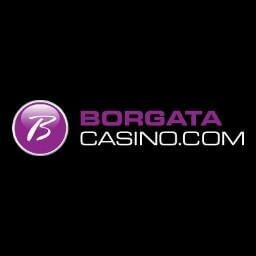There are many important life skills that one should know in today’s world. Holding your own at the poker table could be one of them.
Whether you will just play once a year or once a month it is better and probably more profitable to rely on your poker skills rather than beginner’s luck. Once you know the basics of poker it is easy to improve.
-
Borgata Poker
100% Deposit Match, Up To $1000 + Up To $75 In Tournament TicketsNew players only, 21+. Available in NJ only. Full T&C apply. Visit site -
BetMGM Poker
100% Deposit Match, Up To $1000 + Up To $75 In Tournament TicketsNew players only. Must be 21 or older. NJ, PA, MI only. Full T&C apply. Visit site -
PokerStars
100% First Deposit Bonus Up to $600New players only. Must be 21 or older. Available in NJ, PA, MI only. Full T&C apply. Visit site -
Party Poker
First Deposit Match up to $600 + $25 On The HouseMust be 21+ and physically located within the state of New Jersey. New customers only. Minimum $10 deposit to qualify for the bonus. Full T&C apply. Visit site -
WSOP
Get up to $100 in Free Play, a chance to win a 2026 WSOP $10,000 Main Event Seat Package, 100% up to $1,000 Deposit Match, and moreMust be 21 or older. Available in NJ, MI, PA only. Full T&C apply. Visit site
Our beginner’s guide to poker will introduce you to some basic poker strategies, beginner tips and bluffing. As well as laying out the poker beginner mistakes NOT to make!
Poker Beginner Strategy
If you are a beginner at the poker table it is best to keep your poker strategy simple and not over complicated to get a good result or maybe even your first win.
Overall, it is best to remain relaxed and try to have fun – it’s only a game after all!

Keeping the above in mind, we have compiled a poker beginner’s strategy guide. It will benefit beginners and maybe some intermediate players as well.
Don’t play too many hands
A very easy way to raise your poker game is to become more selective about what hands you play with.
Many amateur players fall into the trap of thinking that any hand can win. In fact, some hands are just more likely to win than others.
So, being selective in your poker games can help you both win money and save money! When you finally know when to fold and when to hold, try signing up with a Party Poker bonus code and play for real money.
Don’t bluff too much
A common belief among beginner players is that you most bluff to win. Again, it is better to simply play your cards rather than trying to bluff your opponents.
The real art of bluffing comes from many years of practice and just because the winners of the WSOP make spectacular bluffs does not mean it is a good idea for beginners to try the same.
This is a good strategy to remember while playing your first game. Or even if you are playing against other beginners as they will more than likely try to bluff you.
Remember suited cards are not the best
It is good to remember while playing your first game that suited cards are not actually as good as many poker beginners and some intermediate players think they are. Many players over-evaluate suited cards, when in fact the cards of the same suit only improve a hand by 2%. It is certainly not a hand to call raises with!
Think about your opponent’s cards
While you naturally concentrate on your own cards during a game of poker a good strategy is to keep in mind your opponent’s cards. It might be obvious but many players forget this simple maneuver.
The strength of your opponent’s hand is just as vital to a win or a loss as the strength of your own. If you think that your opponent has a better hand than you, you should prepare to fold.
Pay attention to the game
Another good strategy for beginners is to pay attention to the game even when you are not in it. For example, one of the fastest ways to learn your opponent’s body language and also improve your game is to concentrate on each game to understand how your opponent plays.
You will discover the way they move and play when they have a good hand and when they have a bad hand.
How To Bluff
Bluffing for beginners and even intermediate poker players is a risky tactic and takes years or at least games to perfect. However, here are some simple tricks and suggestions for successful bluffing:
- Practice your poker face
Developing an expressionless poker faces is vital for a successful bluff. It is a good idea to practice your ability to show no emotion and reveal nothing other than a few casual words exchanged during the game.
Do not give away any information and avoid expressing disappointment at seeing bad cards. Furthermore, you could also wear sunglasses and a hat. This will hide a part of your face so that your poker face will be more effective. Make sure to be up-to-date with the latest poker terms, so you do not sound out of place.
- Read the Tells
Again, in order to bluff, it is important to read your opponents and analyzing their ‘tells’. This way you will see what way they play and react when they are having a good game of when they are having a bad game.
However, there are some common telltale signs of bluffing like eye twitches, lip movements and holding of breath, which are all considered signs of Bluffing. Shaking, on the other hand, is considered a sign of strength.
Furthermore, it is beneficial to watch the way the other players put down their chips. If a player puts his chips down bly and far away from him it means he subconsciously feels his chips are already gone, however, if that is placed close to them it means he thinks he will have his money back.
- The importance of action cards
Action cards can be either the fourth or fifth community cards, also referred to as the turn and river cards. When these uncover a high value, a pair or an opportunity for a flush, they frequently cause a fierce new round of bidding.
A good strategy to bluff, therefore, is to take the lead in the bidding war that follows an interesting river card and force other players at the table to fold as it might indicate to them that you have the best hand.
Beware, however, your opponent might just have the hand you are pretending to have!

Poker Beginner Mistakes
The following are the typical mistakes that beginner poker players make. If you want to improve your poker game and get your first win it is important not to fall into the same beginner’s trap.
Remember DO NOT make the following mistakes:
- Do not play too many hands.
- Do not play scared – have confidence. Even if you never played in your life, play like you have.
- Do not make over-sized bets.
- Do not let emotion affect your play.
- Do not bluff too much.
Remember that each game is a new opportunity to practice and learn from your mistakes!
Online Poker Schools
Nowadays, there are plenty of options for practicing and learning about poker online. The following online poker operators have a special section dedicated to helping you understand how to play poker. Once you get started, they offer plenty of tournaments, Sit’N Go leaderboards and weekly promotions. Plus, grab a welcome bonus when you sign up!






